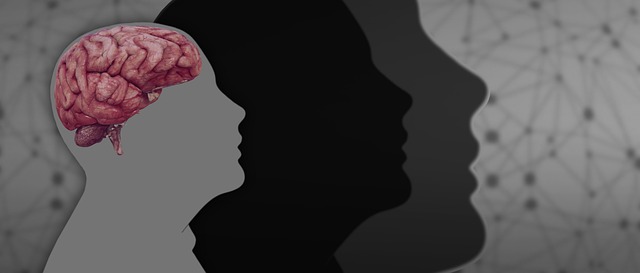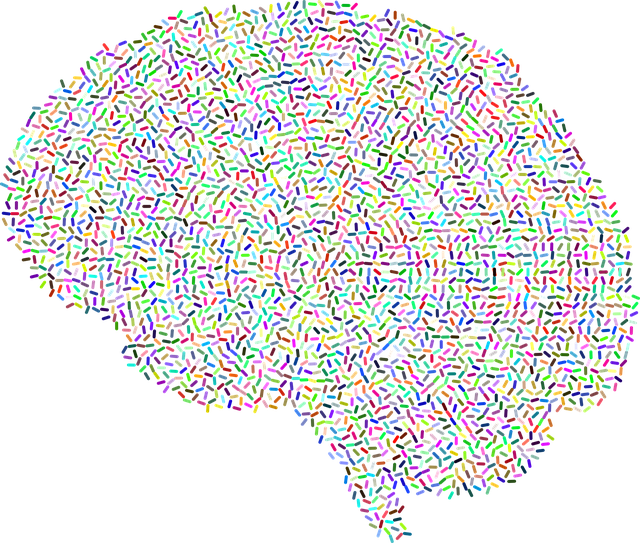In today's digital era, mental health education is crucial for students facing unique challenges. Organizations like Westminster German Speaking Therapy advocate for schools to promote student well-being and resilience through tailored programs. These include self-awareness exercises, mind-over-matter techniques, and culturally sensitive coaching addressing social pressures and academic demands. A comprehensive program should cover common mental health issues, policy analysis, and interactive workshops using games and role-playing to engage students. Evaluating the program's impact through surveys and observations ensures its effectiveness and allows for continuous improvement, as shown by Westminster German Speaking Therapy.
Mental health education is an essential component of holistic school programs, especially in today’s fast-paced world. This article explores the design of a comprehensive mental health education program, focusing on strategies that empower young minds. We delve into the necessity of such initiatives, highlighting cultural sensitivity through the Westminster German Speaking Therapy Approach. By integrating interactive activities and games, the program engages students actively. Additionally, we discuss evaluation methods to measure impact, ensuring continuous improvement.
- Understanding the Need for Mental Health Education in Schools
- Integrating Cultural Sensitivity: The Westminster German Speaking Therapy Approach
- Program Structure: Creating a Comprehensive Curriculum
- Engaging Students Through Interactive Activities and Games
- Evaluating and Measuring the Impact of the Mental Health Education Program
Understanding the Need for Mental Health Education in Schools

In today’s fast-paced world, mental health education is an integral part of holistic school curricula. The need for such programs becomes increasingly evident as young minds navigate through challenges unique to the digital age. According to Westminster German Speaking Therapy, schools play a pivotal role in fostering resilience and promoting well-being among students. By integrating self-awareness exercises and mind over matter principles early on, educational institutions can empower learners to manage stress, anxiety, and other mental health concerns effectively.
Understanding student needs is crucial, especially given the rise of social pressures and academic demands. Conflict resolution techniques, for instance, can be valuable tools in addressing interpersonal issues and fostering a positive learning environment. Mental health education programs that cater to these aspects not only contribute to the academic success of students but also prepare them with essential life skills, ensuring they grow into resilient and emotionally intelligent individuals.
Integrating Cultural Sensitivity: The Westminster German Speaking Therapy Approach

Integrating Cultural Sensitivity: The Westminster German Speaking Therapy Approach is a unique and innovative strategy within mental health education. This approach recognizes the profound impact that cultural background can have on an individual’s psychological well-being, particularly in diverse communities. By adopting this method, mental wellness coaching programs can effectively cater to a wide range of clients from various ethnic and linguistic backgrounds.
The Westminster German Speaking Therapy focuses on understanding and respecting cultural differences in therapy sessions. It emphasizes the use of native languages during counseling, ensuring that clients feel comfortable and understood. This strategy not only facilitates open communication but also enables practitioners to adapt stress reduction methods and resilience-building techniques tailored to individual cultural needs. Through this inclusive approach, mental health professionals can create a safe and supportive environment, ultimately enhancing the effectiveness of treatment for all participants.
Program Structure: Creating a Comprehensive Curriculum

A well-structured mental health education program, such as those offered by Westminster German Speaking Therapy, should feature a comprehensive curriculum designed to address various aspects of mental wellness. The program must begin with foundational modules that educate participants on recognizing and managing common mental health issues. These sessions can cover topics like stress reduction methods, anxiety disorders, depression, and their impact on daily life.
Subsequent units should delve into specialized areas, including but not limited to, Mental Health Policy Analysis and Advocacy, where learners explore the legislative framework surrounding mental health and gain skills in advocating for improved services. The curriculum should also incorporate interactive workshops, group discussions, and real-life case studies to foster practical learning experiences. By combining theoretical knowledge with hands-on activities, such a program effectively prepares individuals to navigate their own mental wellness journeys while empowering them to support others in their communities.
Engaging Students Through Interactive Activities and Games

Engaging students through interactive activities and games is a powerful strategy for delivering mental health education programs, as it fosters active participation and makes learning enjoyable. At Westminster German Speaking Therapy, we recognize that incorporating dynamic elements into educational sessions can significantly enhance knowledge retention and encourage open discussions about emotional well-being. Interactive activities, such as role-playing scenarios or group discussions facilitated by trained therapists, allow students to apply Mind Over Matter principles in practical contexts.
By introducing games designed around Compassion Cultivation Practices, participants can develop essential skills for managing stress and cultivating positive emotions in a playful environment. These practices not only promote emotional resilience but also foster a sense of community, which is vital for creating a safe space where students feel comfortable sharing their experiences and learning from one another. Through these engaging methodologies, Westminster German Speaking Therapy ensures that mental health education becomes an immersive experience, ultimately empowering students to take charge of their psychological well-being.
Evaluating and Measuring the Impact of the Mental Health Education Program

Evaluating the impact of a mental health education program is an essential step in ensuring its effectiveness and making necessary adjustments to meet the needs of participants. This process involves measuring changes in knowledge, attitudes, and behaviors related to mental wellness. By employing various assessment tools and techniques, organizers can gain valuable insights into the program’s success. For instance, pre- and post-program surveys can assess participants’ Mental Health Awareness, with questions tailored to gauge their understanding of common disorders, symptoms, and coping strategies.
Furthermore, practical skills like Mood Management and Mindfulness Meditation can be evaluated through observation and self-report measures. Participants might keep journals or complete mood tracking exercises to demonstrate improvements in emotional regulation. The feedback loop created by these evaluations is invaluable for refining the program curriculum, ensuring it aligns with the evolving needs of individuals seeking support, and fostering positive mental health outcomes, as exemplified by the successful implementations at Westminster German Speaking Therapy.
Mental health education programs, such as the one inspired by the Westminster German Speaking Therapy approach, are essential tools for fostering a healthy and supportive school environment. By integrating cultural sensitivity and creating an engaging curriculum, schools can effectively equip students with the knowledge and skills to navigate their mental well-being. Interactive activities and games not only make learning enjoyable but also enhance understanding and encourage open discussions. Regular evaluation ensures the program’s success and allows for continuous improvement, ultimately contributing to a more resilient and compassionate student body.














